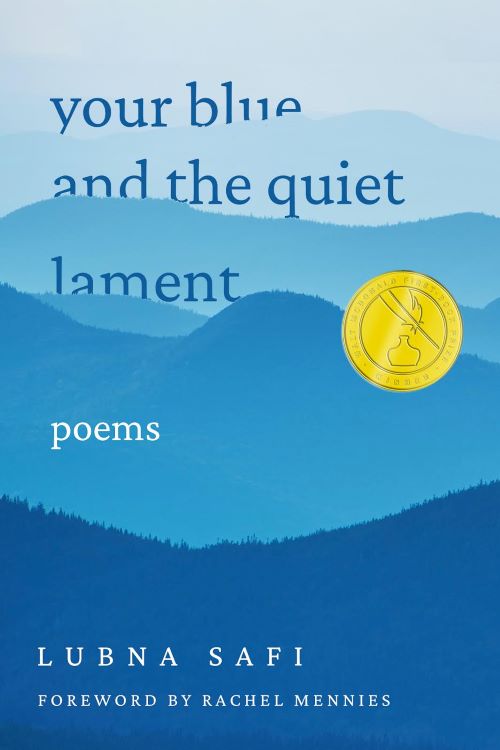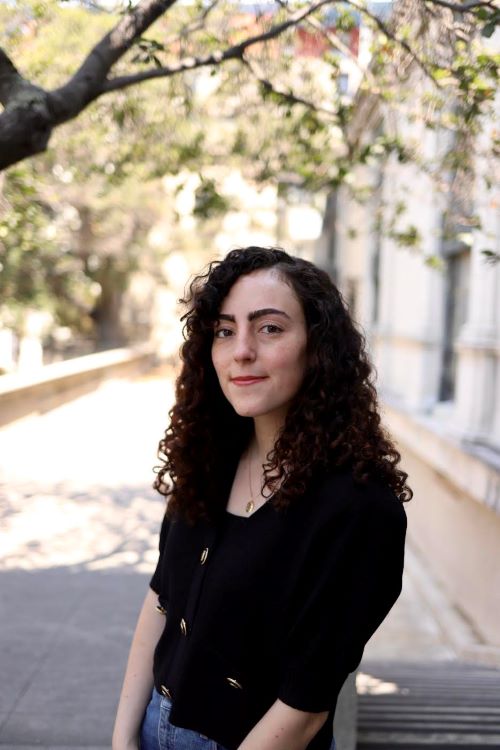Blue is the blue of distance, “the ink that I use is the blue blood of the swan” (Cocteau), of the sea, of the faraway, a discriminating blue, of your eyes, of memory, the blue of baby boys, of glaciers, of a last light, the great blue chord of a nocturnal symphony, of being cold, of shallow holes, of tender bruises, the gathered blue of my mother’s laughter, of once in a moon, of mountains, of blueprints, of the hottest fire, of silence, of nostalgia, of herons, of dreams, lakes, and skies, of reading The Holy Book, the blue-black of my grandfather’s hair and Hayden’s cold mornings, of the horizon, blue taste of summer, off-blue of concentric waves, of elsewhere, “this blue that opened the way to you” (Bennis), of feeling, of late nights, of blues notes, of edges, of memories of your eyes, of piercing, of the afterimages of Lorca’s words, of stones and storms, blue like thought, like time, the past and present blended together, blue tent of refugee camps, of veins, faded blue of childhood’s tongue, of cold lips, glacial blue of the Arctic nights, of God’s unfolding hand (C. D. Wright), of our pale dot, of the tepid pool water, of the elemental hue of the upper sky “that seems to retire from us” (Goethe), of the typical heavenly color (Kandinsky), blue turning deeper and deeper before going out.
Blue variations
Feature Date
- February 8, 2023
Series
Selected By
Share This Poem
Print This Poem
“Blue variations” from YOUR BLUE AND THE QUIET LAMENT: by Lubna Safi.
Published by Texas Tech University Press in August 2022.
Copyright © 2022 by Lubna Safi.
All rights reserved.
Reproduced by Poetry Daily with permission.

Lubbock, Texas
Texas Tech University
Your Blue and the Quiet Lament records the textures of grief after a cousin’s murder at the hands of the Syrian state reaches the poet through a long-distance phone call. The poems trace a narrative of arrest, imprisonment, and torture in Syria and interweave the difficulties a family experiences in the diaspora.
Shifting between the death of poet Federico García Lorca and that of her cousin, Lubna’s poetry contends with personal loss by distancing the meaning of one death through the intermediary of another. Yet the distortion of distance is already there—in the language, in the geographic space, in time, in the grief itself—tinged with blue.
As she recalls childhood memories and imagines conversations with her dead cousin, Lubna’s poetry whispers, calls out, sings, laments, pens letters, photographs, sketches, paints, and prays in an attempt to exhaust grief.
Poetry Daily Depends on You
With your support, we make reading the best contemporary poetry a treasured daily experience. Consider a contribution today.




